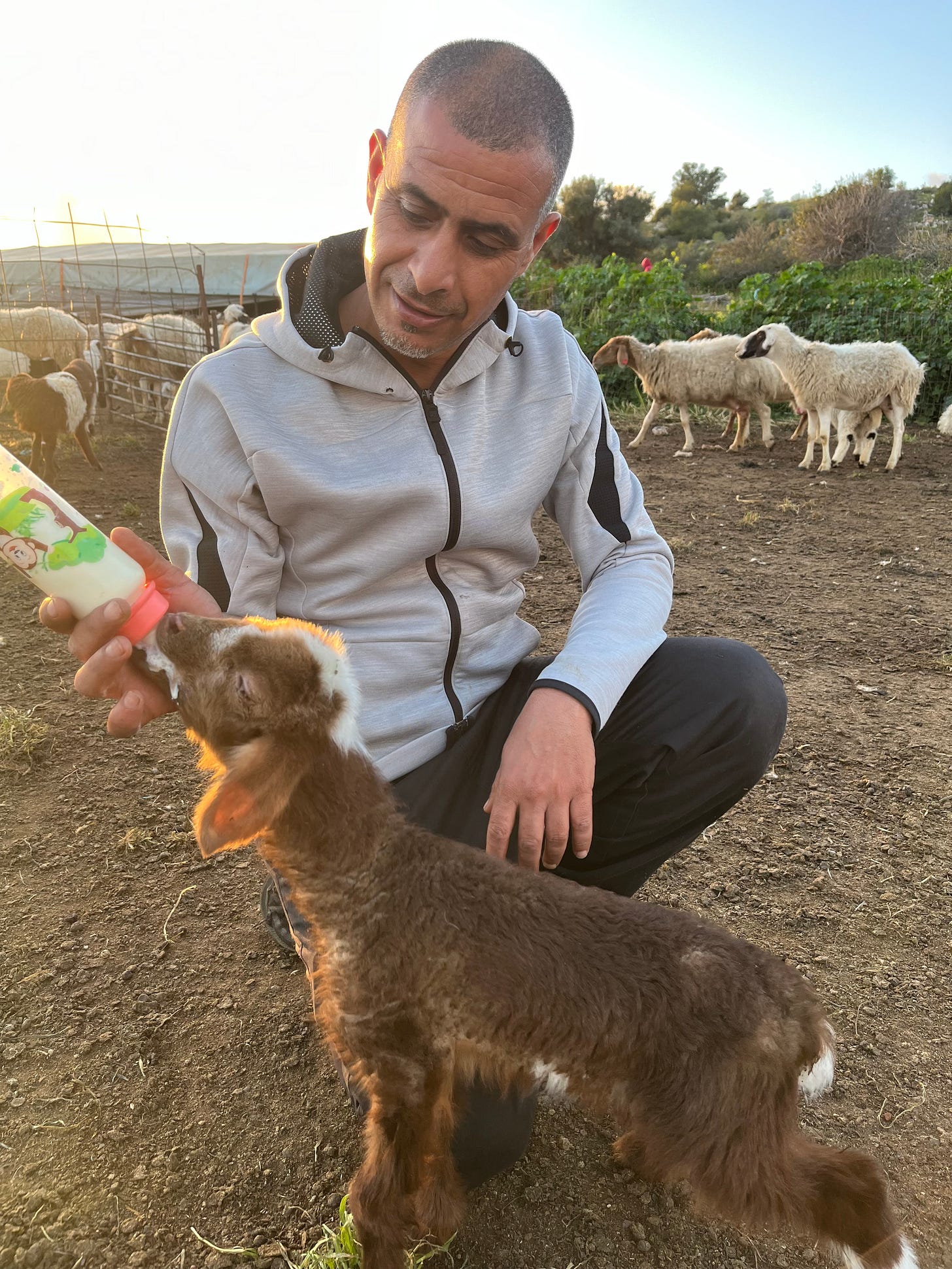Dear Healthy Jew,
Some months ago, I posted in these pages about the 12 tribes of Israel, and explained how 12 different lines together create every space - just as Yaakov’s (Jacob) 12 different sons together forged the Jewish nation. The message: We allow God inside our world when we build for Him a place to dwell in Israel, each tribe in its own line, all working together.
In the comments section of that post, had some great questions about Israel’s 12 tribes today.
In honor of the Pesach holiday, which finishes tomorrow on the day that the 12 tribes walked through the split Red Sea - each tribe in its path, together in the water - I’m sharing our discussion with you here.

What do you see as the primary cultural differences in the 12 tribes in the past and today? Who are each of the 12 tribes today in your opinion?
That's a great question! To cover all 12 tribes would take 12 posts, but Jewish tradition teaches a broad theme that reappears throughout history, rooted in Yaakov's two primary wives: Rachel and Leah.
The sons of Rachel (mainly Yosef [Josef] and Binyamin [Benjamin]) present the hard-working, justice-based side of Judaism. They're the backbone that holds the nation together in the deepest exiles (think Yosef in Egypt) with focus and dedication to living by God's word. You might call them the rational mind of the Jewish people.
The sons of Leah (most of the others) hold the lofty ideal of our nation: God's immutable love for every one of His children, no matter how far they stray. King David, descended from Yehuda (son of Leah) established God's eternal kingdom on earth. One might call these tribes our beating heart - the emotional experience of the Jewish soul.
We can hear echoes of these two lines throughout Jewish history. For example, Ashkenazim tend to be drawn to the intellectual side of Judaism, and Sephardim more to feeling and connection. Even within Ashkenazi Jewry, the "Lithuanian" tradition focuses on the practical details of Jewish law, while the Hasidic tradition reminds us that we have to feel our relationship with God, no just know it.
Hope that's helpful, and thanks for stopping by!
Thank you, yes that's very helpful.
What are your views regarding the "lost tribes of Israel"? How does that play into how we should understand the concept today?
I ask as a non-Jewish Zionist activist who has developed a deep appreciation for Jewish history, culture, theology, and wisdom. I have very secular reasons for understanding how I've drifted this way over the years, but I still wonder about it from a more spiritual, mystical direction too.
It’s great to feel your appreciation for all things Jewish. Keep on learning!
In my understanding, the lost-tribe search is more fantasy than substance.
Here's what we know: most of 10 of the tribes were sent into exile sometime around 500 BCE, and except for rumors here and there, haven't been heard of since. Today, most Jews come from the tribe of Yehuda (Judah), which is where the name "Jew" comes from.
The Mishnah records a dispute whether in Messianic times (read: not yet) they will return. Apparently everyone agrees they will return in some way, because Yechezkel's prophecies clearly refer to all 12 tribes returning together to Israel.
In the meantime, I wouldn’t worry about the many other theories running around - not only because they aren’t very convincing, but because they distract from the true message of Israel’s missing tribes and their future reunion.
For all practical purposes, our lost tribes are the Jews we meet every day who look and think differently than us. The path to bring back the lost tribes - both modern and ancient - is by bringing our various communities of Jews together with love and acceptance.
As I described in my original post about Israel’s 12 tribes, we allow God inside our world when we build for Him a place to dwell in Israel: each tribe in its own line, all connecting together.
That means to respect and work together with people who think and live differently in things such as
how to dress modestly and respectably.
internet and smartphone use.
length and quantity of prayer.
balance of working and Torah study.
how religious Jews should participate in secular society.
This doesn't mean there aren't legitimate differences of opinion on these and other issues. We're not all exactly the same, and aren't meant to be. But we're on the same team, building together a healthy Jewish nation.
Thank you for reading Healthy Jew.
Here are 2 great paths to continue the journey:
Also check out this intro and index to explore hundreds of posts about our 3 Healthy Jew topics: Wellness with Wisdom, Land of Life (Israel), and Sensible Spirituality.
Finally, always feel free to reach out here with any comments, questions, or complaints:
I look forward to hearing from you!
Be well,
Rabbi Shmuel Chaim Naiman








It has been a great joy to discover your site. Happy is the person who gets to walk with you. Thank you for your work!